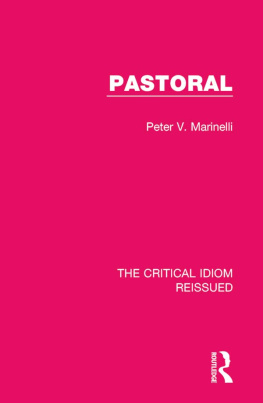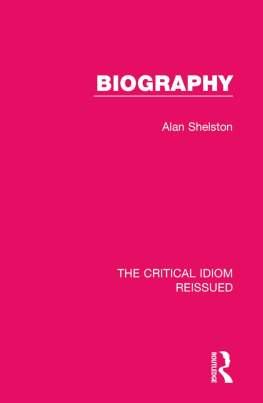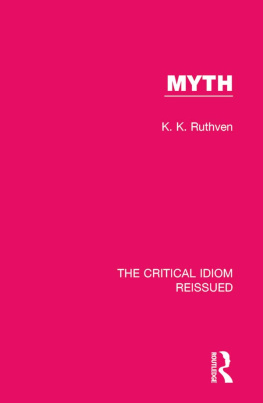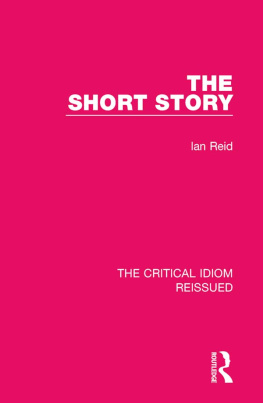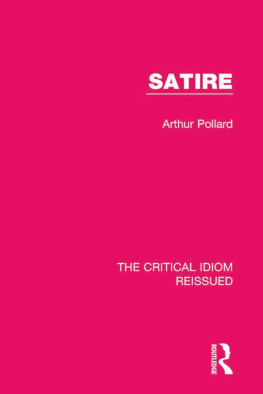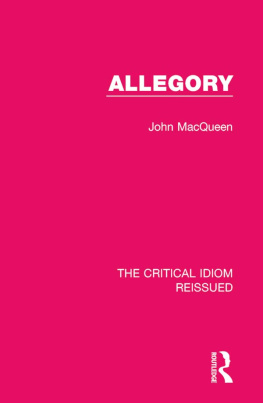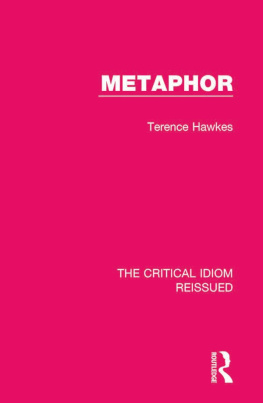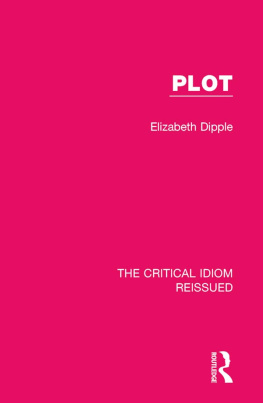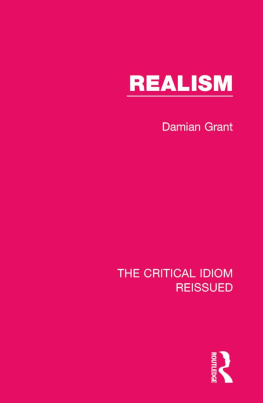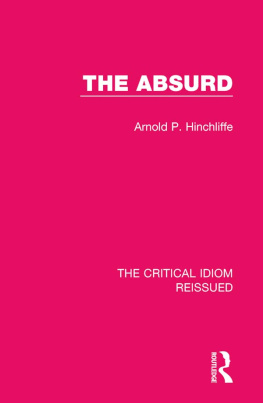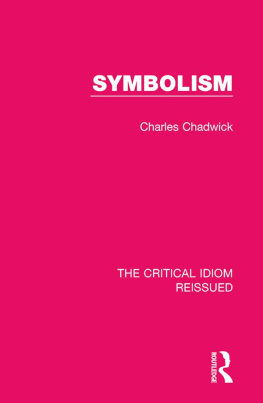Table of Contents
Guide
Print Page Numbers
THE CRITICAL IDIOM REISSUED
Volume 14
PASTORAL
PASTORAL
PETER V. MARINELLI
First published in 1971 by Methuen & Co Ltd
This edition first published in 2018
by Routledge
2 Park Square, Milton Park, Abingdon, Oxon OX14 4RN
and by Routledge
711 Third Avenue, New York, NY 10017
Routledge is an imprint of the Taylor & Francis Group, an informa business
1971 Peter V. Marinelli
All rights reserved. No part of this book may be reprinted or reproduced or utilised in any form or by any electronic, mechanical, or other means, now known or hereafter invented, including photocopying and recording, or in any information storage or retrieval system, without permission in writing from the publishers.
Trademark notice: Product or corporate names may be trademarks or registered trademarks, and are used only for identification and explanation without intent to infringe.
British Library Cataloguing in Publication Data
A catalogue record for this book is available from the British Library
ISBN: 978-1-138-21971-7 (Set)
ISBN: 978-1-315-26975-7 (Set) (ebk)
ISBN: 978-1-138-28317-6 (Volume 14) (hbk)
ISBN: 978-1-315-11552-8 (Volume 14) (ebk)
Publishers Note
The publisher has gone to great lengths to ensure the quality of this reprint but points out that some imperfections in the original copies may be apparent.
Disclaimer
The publisher has made every effort to trace copyright holders and would welcome correspondence from those they have been unable to trace.
Pastoral
Peter V. Marinelli
First published 1971
by Methuen & Co Ltd
11 New Fetter Lane, London, EC4
1971 Peter V. Marinelli
SBN 416 08700 0 Hardback
SBN 416 08710 8 Paperback
This title is available in both hardback and paperback editions. The paperback edition is sold subject to the condition that it shall not, by way of trade or otherwise, be lent, re-sold, hired out, or otherwise circulated without the publishers prior consent in any form of binding or cover other than that in which it is published and without a similar condition including this condition being imposed on the subsequent purchaser.
Distributed in the U.S.A.
by Barnes & Noble Inc.
Contents
This volume is one of a series of short studies, each dealing with a single key item, or a group of two or three key items, in our critical vocabulary. The purpose of the series differs from that served by the standard glossaries of literary terms. Many terms are adequately defined for the needs of students by the brief entries in these glossaries, and such terms will not be the subjects of studies in the present series. But there are other terms which cannot be made familiar by means of compact definitions. Students need to grow accustomed to them through simple and straightforward but reasonably full discussions of them. The purpose of this series is to provide such discussions.
Some of the terms in question refer to literary movements (e.g., Romanticism, Aestheticism, etc.), others to literary kinds (e.g., Comedy, Epic, etc.), and still others to stylistic features (e.g., Irony, The Conceit, etc.). Because of this diversity of subject-matter, no attempt has been made to impose a uniform pattern upon the studies. But all authors have tried to provide as full illustrative quotation as possible, to make reference whenever appropriate to more than one literature, and to compose their studies in such a way as to guide readers towards the short bibliographies in which they have made suggestions for further reading.
John D. Jump
University of Manchester
Towards the beginning of the eighth book of Wordsworths The Prelude, a book entitled Retrospect Love of Nature Leading to Love of Man, there occurs a passage of almost two hundred lines which is of distinct importance to the pastoral tradition. It begins with a notable paragraph on the growth of the poets love of humanity, a paragraph which terminates in a simple assertion about a class of simple men:
For me, when my affections first were led
From kindred, friends, and playmates, to partake
Love for the human creatures absolute self,
That noticeable kindliness of heart
Sprang out of fountains, there abounding most,
Where sovereign Nature dictated the tasks
And occupations which her beauty adorned,
And Shepherds were the men that pleased me first.
(1218)
The word Shepherd, rendered more prominent by the capitalization, is for any reader in the European tradition an evocatory one. But the resonances of the word may move us too suddenly into a wistful recollection of the meadows and pastures of the golden Arcadias of classical pastoral, and therefore Wordsworth is prompt to clarify his meaning. He does so by interposing a series of idyllic reminiscences which lovingly record the development of the earlier pastoral, and at the same time divide it sharply from his own conception of that form of life and of the literature it inspires. He approaches the issue by a series of negative definitions. The Shepherds with whom he is concerned are not those whom Saturn ruled in the Latian wilds and who have left even to us toiling in this late day,/A bright tradition of the golden age. They are not such as mid Arcadian fastnesses made a tradition of Felicity, in Grecian song renowned. They are not such as entered with Shakespeares genius the forests of Arden or the rustic setting where Perdita and Florizel Together danced, Queen of the feast, and King. Nor, finally (and the concision of the allusion is attributable perhaps to the wealth of pastoral forms to be found in this author), are they such as Spenser fabled. The Shepherd who plays so significant a part in Wordsworths own spiritual development is rather a type whose rural ways and manners were the unluxuriant product of a life/Intent on little but substantial needs. The line Smooth life had flock and shepherd in old time points the contrast neatly: the fanciful creatures of old pastoral on the one hand, and the actual shepherd of modern times on the other. And though there are points of contact between the two the latter also tunes a flageolet to liquid notes of love, he too occasionally spends hours of unlaborious pleasure, with no task/More toilsome than to carve a beechen bowl the poet is constantly aware that his contemporaries more usually move under skies less generous and serene than those of the ancient Mediterranean, in landscapes of wintry snows, hard labour, terrifying winds and an overawing solitude. In the poets idealizing imagination, the actual Shepherd assumes a giant shape: he becomes, beheld single against the sky, A solitary object and sublime. It is, perhaps, because the modern shepherd unites sublimity and reality that Wordsworth can draw the ultimate comparison between the delicate creatures of Arcadian fiction and what is essentially a moral being:

